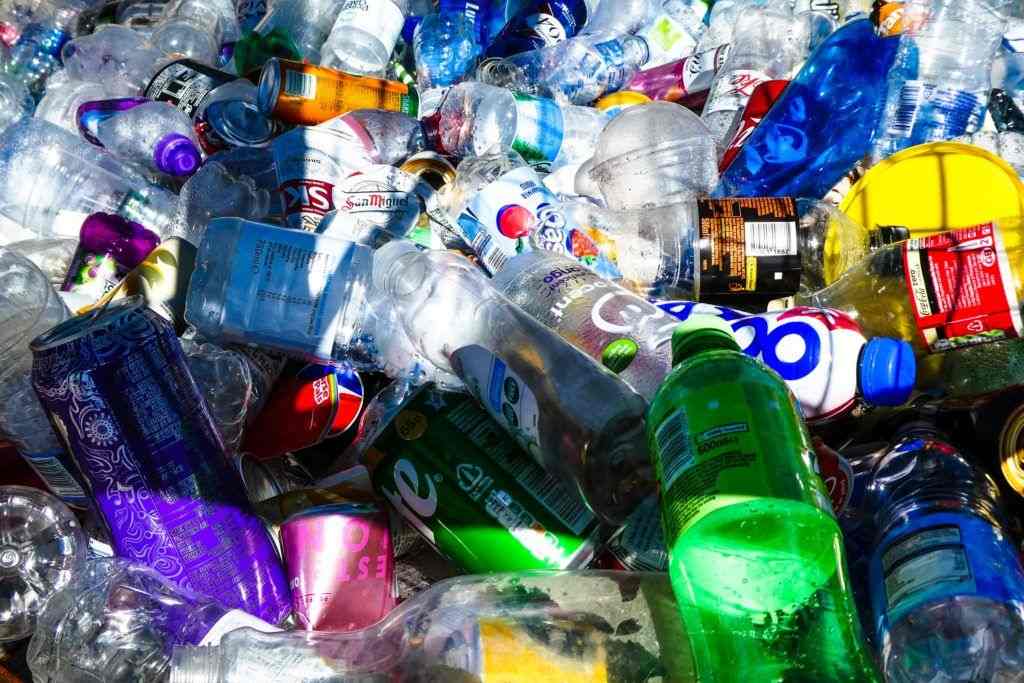What is CRV in California?
Most people know that certain aluminum, plastic, and glass bottles come with a California Redemption Value (CRV) charge. This charge is paid by manufacturers and passed on to consumers when they purchase the product. A product has a CRV if it says on the packaging, “CA Cash Refund,” “CA CRV,” “California Redemption Value,” “CA Redemption Value,” or “California Cash Refund.”

When the product is recycled, the recycler can collect a refund of the CRV paid by the state. Consumers can collect CRV by recycling their bottles themselves. More commonly, waste haulers collect CRV by redeeming recyclable materials picked up from consumers in curbside bins. Waste haulers and processing companies collect billions of dollars a year through the CRV program.
Where there is big money, there is often lots of fraud. This is true when it comes to California’s CRV program. By manipulating data regarding returned CRV material, recycling centers can claim more money from the government than they are owed. For example, in 2012, the Los Angeles Times reported that nearly every single aluminum, plastic, and glass bottle bought in California was counted as returned and recycled (about 8.3 billion returned out of 8.5 billion bought). This simply is not possible.
If you have information about recycling fraud, here is what you need to know about the law.
Types of Recycling Fraud
At its most basic, recycling fraud involves manipulating the weight of CRV materials. Recyclers and fraudsters do this in several ways.
- First, some recyclers import bottles from neighboring states. Because these bottles did not have a CRV charge when bought, they are not eligible for CRV payments. Falsely representing that these materials are eligible for CRV is one way that recyclers commit fraud.
- Second, some recyclers include non-CRV material, like trash or other scrap materials, to increase the load’s reported weight. This also increases the amount of the CRV payment.
- Third, some recyclers weigh the same truckload fo CRV more than ones to increase its recorded weight.
- Fourth, some recyclers “recycle” small loads of CRV repeatedly. This is easy to do because recyclers are not required to keep transaction logs for loads of less than 99 pounds.
- Fifth, some recyclers simply make up weight tickets. This is possible because weight records are rarely checked or scrutinized.
- Finally, some recyclers change the reported source of CRV material to inflate the CRV rate. This is possible because CRV material collected at certain centers is reimbursed at higher rates than curbside bins or other collection programs.
For instance, in one whistleblower case, a worker alleged that Recology in San Francisco scammed more than one million dollars by lying about the source of its CRV material. The case highlights the need for whistleblowers to expose recycling fraud–there’s often no other way to catch it, given that recycling centers are rarely audited.
Recycling Fraud Violates the California False Claims Act
The California False Claims Act is modeled on the federal False Claims Act. Government Code Section 12651 forbids people and companies from presenting “false or fraudulent” claims to the state or local governments for approval. It also prohibits presenting false records in support of any false or fraudulent claims.
Claims to the State’s CRV program are “claims” within the meaning of the California False Claims Act. This means that people with knowledge of recycling fraud may file a qui tam case, or a case brought on behalf of the government. The California Attorney General or a local district attorney then investigates the allegations and determines whether to bring the case.
Companies and individuals found liable under the California False Claims Act are liable for treble damages and civil penalties of at least $5,500 per violation, as adjusted for inflation. Whistleblowers who bring qui tam cases for violations of the California False Claims Act may receive rewards of between 15 and 50% of the total damages recovered by the government.
Retaliation Under the California False Claims Act
Numerous laws also prohibit retaliation against employees who complain about illegal conduct at work. These laws include the California False Claims Act. Under Government Code Section 12653, whistleblowers who experience retaliation may receive twice their actual damages, special damages, and attorneys’ fees and costs.
In addition, workers who experience retaliation may have claims under Labor Code Section 1102.5 or claims for wrongful termination in violation of public policy.
If You See Recycling Fraud, Talk to An Experienced Whistleblower and Employment Attorney
It is important to come forward with information of recycling fraud. Government officials have estimated that recycling fraud costs around $40 million per year, but this estimate could be low.
Our experienced whistleblower attorneys can help you navigate False Claims Act cases and other complex whistleblower laws. Before working at King & Siegel, our attorneys did white collar criminal defense and saw firsthand how these types of illegal schemes work. We know that these cases are time- and resource-intensive and will devote the necessary energy to bring justice to wronged employees and taxpayers.
Contact us today through our website or give us a call at (213) 214-3757 to schedule a free consultation.
